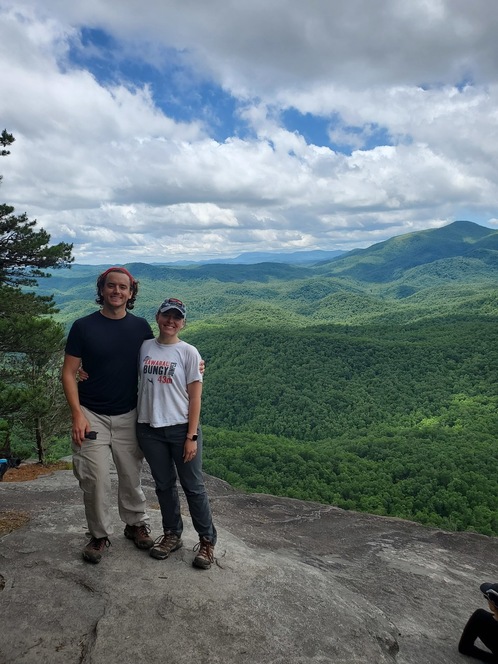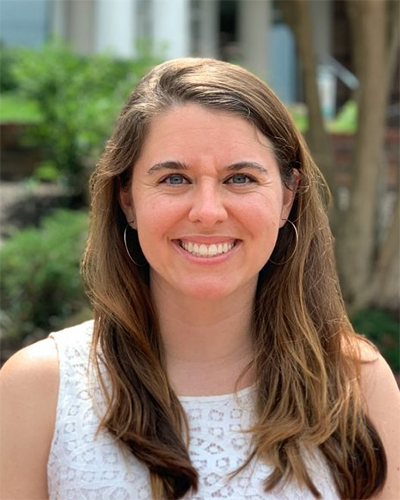Missy Gilbert
CAPSTONE
Capstone Project Committee: Rachel Mills, M.S., CGC; Ratchneewan Ross, Ph.D., RN, FAAN; Christine Murray, Ph.D.
Approximately one in three individuals in the United States experience sexual violence, physical violence, psychological aggression, and/or stalking by an intimate partner in their lifetime. Disclosures of intimate partner violence (IPV) may occur within the healthcare system due to both the prevalence of IPV and the physical consequences of abuse. Although it is statistically likely that genetic counselors’ have patients experiencing IPV, little is known about how genetic counselors address IPV with patients. This descriptive study aimed to better understand the occurrence of IPV disclosures in genetic counseling and the genetic counselor factors that impact such discloses such as experience, comfort, attitude, myths, and previous experience or training in IPV. Genetic counselors who are members of NSGC and have provided patient care in a clinical setting in the last five years were surveyed. Twenty-three of 35 respondents (65%) counseled patients who experienced and/or disclosed IPV during a genetic counseling session across specialties, with the highest reported rate occurring in prenatal/preconception (65%) and the lowest reported rate in pediatrics (7%). The degree of endorsement for myths related to causes and responses to IPV affects genetic counselor’s attitudes in helping patients who are experiencing this type of violence; greater agreement with IPV myths was correlated with disagreement that genetic counselors should be aware of resources for IPV (p=0.005) or that they should refer patients experiencing IPV to other healthcare providers (p=0.002). Seventy-four percent of genetic counselors desire additional training on IPV, including advanced counseling skills and information about how to recognize IPV in patients. Findings from this research indicate that genetic counselors provide counseling for patients experiencing IPV in a variety of clinical settings and have some comfort with counseling this population. Given the sensitive and high-stakes nature of IPV, additional training is desired by genetic counselors to ensure appropriate and conscientious care.
Since Graduation

Following graduation in May 2021, Missy enjoyed some nice rest and relaxation. She visited her parents in Denver, CO and enjoyed the beauty of Brevard, NC over Memorial Day weekend. Missy started working as a prenatal genetic counselor at WakeMed in mid-June. She is very excited to join the WakeMed team serving her community to the best of her ability!
Missy currently lives in Raleigh, NC with her husband (pictured), dog Penny and cat Posey.
